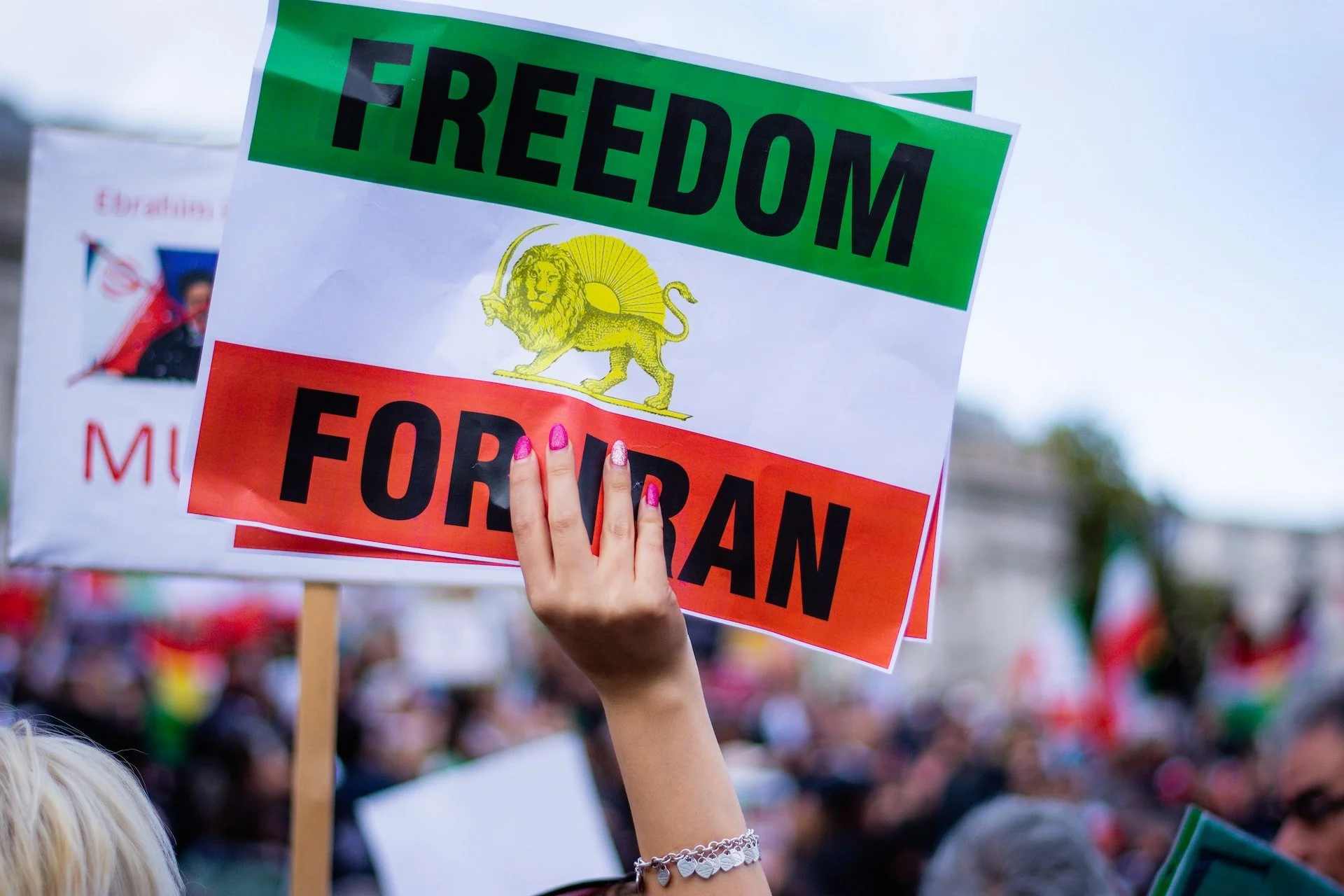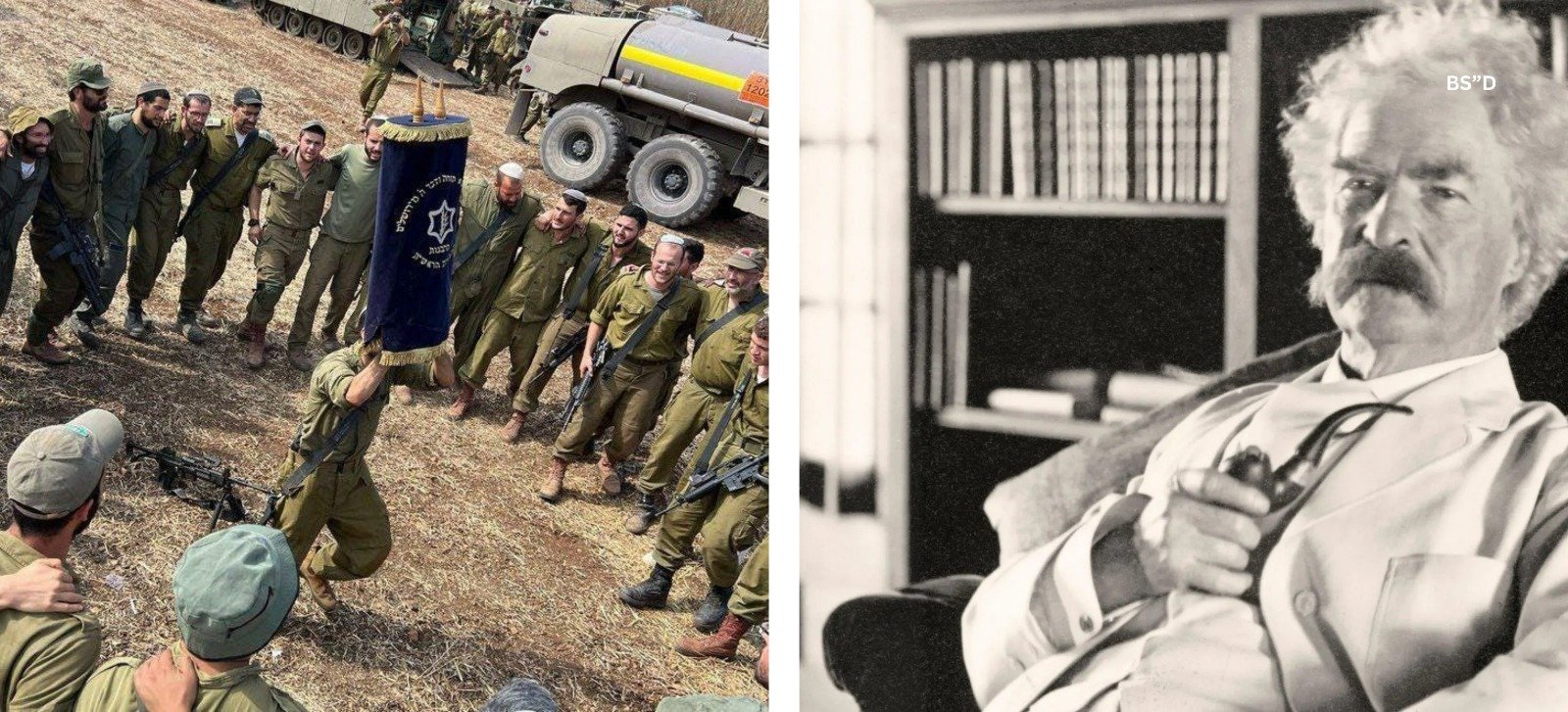
The Future is Bright
Bar Kuperstein was a medic who was kidnapped by Hamas after staying behind at the Nova Festival to care for the wounded.
Years earlier, Bar had already assumed enormous responsibility. After his father, Tal—a fellow paramedic—was paralyzed in a car accident, Bar became the primary breadwinner for his family.
In the aftermath of Bar’s abduction, his mother, Julie Kuperstein, launched an extraordinary and deeply personal initiative. Rather than turning to politics or media campaigns, she asked Jewish men around the world to don Bar’s tefillin—and the tefillin of other captive men—in their merit.

It's a Beautiful World
On the evening of January 17th, 1951- 10th Shevat, 5711, a diverse crowd of a few hundred people which included holocaust survivors, refugees from Stalinist Russia and American-born young students, all gathered at the headquarters of the Chabad Lubavitch movement, 770 Eastern Parkway, Brooklyn, NY, in anticipation of a monumental event that was about to occur.

Song of the Soul
In a moving video clip from early October, a young man named Yehuda Becher can be seen singing a soul-stirring song he composed to the prayer “My G-d, the soul that You have placed before me, it is pure.” Tragically, just a few days later, Yehuda was murdered by terrorists at the Nova Music Festival, along with over 1200 of our beloved brothers and sisters, during the Simchat Torah October 7th massacre.

Optimism
Once, a disciple of the Rebbe Rashab, Rabbi Sholom Dovber Schneerson (1860-1920), despairingly came to the Rebbe to receive his blessing and guidance after experiencing a devastating loss to his once successful business.
The Rebbe Rashab listened and then said: “One of the wondrous attractions in Vienna is a great big wheel (the Wiener Riesenrad, constructed in Vienna in 1887, one of the oldest extant Ferris Wheels in the world)

A Hostage Mother’s Wish
On Thursday, January 30, 2025, while freed hostage Agam Berger was being flown with her parents in a helicopter en route to Rabin Medical Center, she held up a sign on a dry-erase board that read, "I chose a path of faith, and I returned through a path of faith."
Agam was kidnapped on October 7th during the brutal surprise Hamas attack at the Nahal Oz base alongside her friends Liri Albag, Karina Ariev, Daniela Gilboa, and Naama Levy. Her friends, who were miraculously released last week, shared that despite enduring 14 months in captivity, Agam remained steadfast in her faith. She consistently observed Shabbat, refrained from eating non-Kosher food despite hunger, recited blessings before meals, and even risked further abuse by refusing to cook for her captors on Shabbat.

Let My People Go
As Iranians have taken to the streets in some of the largest protests in recent years—and as the brutal Iranian regime responds with ruthless crackdowns on its own citizens—it is difficult not to reflect on this week’s Torah portion. In Parshat Va’eira, G-d sends Moses to confront Pharaoh with a simple yet revolutionary demand: “Let My people go.”
Pharaoh refuses. What follows are the Ten Plagues.

Harnessing Our Inner Passion
During Chanukah 2020, in Tyumen, Siberia, a special ice Menorah was built in honor of the holiday which served as a beacon for the local Jewish population. The Menorah was erected by the local Chabad emissary, Rabbi Yerachmiel Gorelick. The menorah generated considerable publicity in the town and was also featured on a prominent Israeli television show, which described how the Menorah was built and featured the lighting of the first light of Chanukah on the ice menorah.

Nature is a Series of Miracles
A comedian once shared a great perspective he learned during his travels:
"I was on an airplane recently, and the flight attendant announced that there was high-speed internet on the airplane. It worked great, and we were all enjoying the service. But shortly afterward, it broke down, and an announcement was made on the loudspeaker to apologize. Just then, the person sitting next to me made a face and expressed his profound disappointment with the airline.

Post Oct. 7 Miracles
A young boy comes home from Hebrew school, excited to share with his parents what he learned about the Exodus from Egypt.
He begins, "Mom, Dad, you won’t believe this! The Jews were running away from Pharaoh, and they got stuck at the Red Sea! But then Moses called in the Israeli engineers, and they built a huge bridge overnight so everyone could cross safely. Then, when Pharaoh’s army chased them, Moses radioed the Israeli Air Force, and they bombed the bridge, causing the Egyptians to drown!”

Man Plans…
There is a well known Yiddish expression, “Der Mentsch Tracht Un Gott Lacht (man plans and G-d laughs)”. While this lesson has always been relevant, over these past two years it has been felt even more profoundly.

Modern Slavery in the Land of the Free?
By almost every material measure, Americans today enjoy extraordinary affluence and freedom. Technological advancements have opened endless career paths, flexible work arrangements, remote access, and unprecedented comfort. Yet recent studies, including the World Happiness Report, reveal a striking paradox: despite these advantages, Americans—especially younger generations—report declining happiness and a diminished sense of freedom.
The lines between work and home, productivity and rest, connection and distraction have blurred. Many people feel perpetually “on call,” tethered to their jobs, inboxes, and social media feeds. In the pursuit of success, status, or security, work and technology quietly begin to dominate life rather than enhance it.

The Digital Revolution
The digital revolution in the mid-twentieth century spurred the emergence of the information age.
The technological advances of the last few decades have radically changed the way we communicate, work, shop, and receive our education just to name a few.

Finding Faith Amidst the California Fires
In the face of life's adversities, moments of profound clarity can emerge, reminding us of the deeper purpose of our existence. For Joshua Kotler and his wife, Emily, such a moment arose amidst the devastation of the California wildfires that destroyed their Altadena home.
As the fire consumed their house perched atop a mountain, the Kotlers escaped with their two young daughters, taking only the bare essentials. When they returned to the charred remains, they discovered a single item untouched by the flames: a menorah passed down from Joshua's grandmother, a Holocaust survivor.

It's all in the head
There is an anecdote told of a prisoner in a Russian labor camp. His task, for twenty-five grueling years, involved turning a heavy wheel fixed to a wall. He assumed perhaps he was milling grain, or pumping water that irrigated many fields. In his mind's eye he saw the plentiful crops and the sacks of milled grain feeding thousands of people. However, upon his impending release, he requested to see the apparatus behind the prison wall. To his dismay, the wheel served no purpose. The man collapsed in a faint, absolutely devastated. His years of toil felt utterly futile.

True or False?
If you were to predict the future, which companies, nations, trends, or relationships would you bet on to endure thirty years from now?
History and modern data suggest the odds are against most. A recent McKinsey study revealed a startling decline in corporate longevity. According to research by McKinsey & Company, it’s estimated that 75% of the companies currently on S&P 500 will have vanished within 15-20 years.

What is the Secret to Jewish Immortality?
In his famous essay "Concerning the Jews," published in 1898, Mark Twain presents his profound wonder about the Jewish people:
"The Jews constitute only 1% of the human race... It suggests a nebulous, dim puff of stardust lost in the blaze of the Milky Way. Properly, the Jew ought hardly to be heard of; but he is heard of, has always been heard of... His contributions to the world's list of great names are way out of proportion to the weakness of his numbers.

An Internal Crisis—and the Path Forward
Recent data has sent shockwaves through the American Jewish community. A survey by Israel’s Ministry of Diaspora Affairs reveals a startling disconnect: 42% of American Jewish youth believe Israel is committing genocide in Gaza, while 37% express sympathy for Hamas. Adding to the concern, recent political cycles showed that candidates openly hostile to Israel and the Jewish people’s biblical right to their homeland still secured roughly a third of the Jewish vote.
While external antisemitism is undeniably a growing threat, these numbers point to a deeper internal crisis. If the next generation is drifting so far from its roots, we must ask: Where did we go wrong—and how do we fix it?

Personal Responsibility
A man once shared with me the secret behind a happy marriage.
He said "You should share responsibilities with due love and respect each other. Then absolutely there will be no problems."
"In my house, I take decisions on bigger issues whereas my wife decides on smaller issues. We do not interfere in each other's decisions".
I asked him, "Give me some examples".

Harvard’s Menorah
On December 13, 2023, a Menorah lighting celebration took place in front of Harvard’s Widener Library. Rabbi Hirschy Zarchi, the Director of the Harvard Chabad, addressed a gathering of students and faculty.
During his speech, Rabbi Zarchi recounted a significant moment in the history of the Menorah lighting tradition at Harvard.

Beyond Ivy League Dreams: Nurturing Jewish Identity
You may have heard the anecdote of three mothers sitting in a park, debating when life truly begins.
The first says, “Life begins at conception.”
The second counters, “No, life begins at birth.”
The Jewish mother shakes her head and says, “You're both wrong—life begins when the child gets their college degree.”

